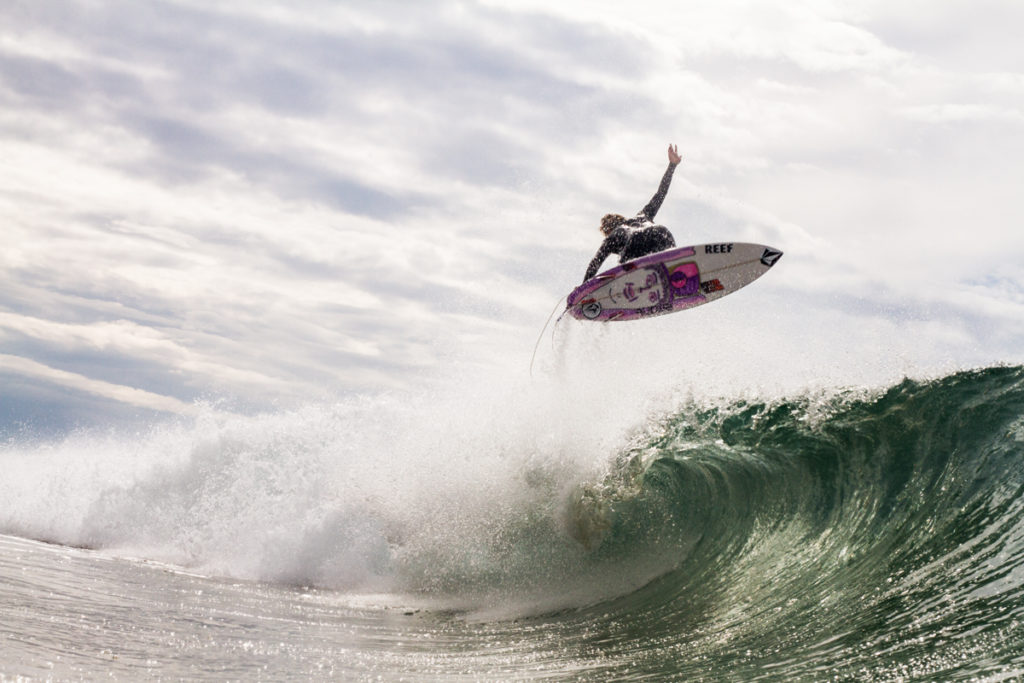Buy Now, Pay Later

Free Surfboard Advice
Customer Service 9am - 5pm (UK)
Trusted by Pyzel

A very popular sport, there are around 500,000 surfers in the UK alone and at least 18 million worldwide. According to the International Surfing Association, there may be as many as 35 million, if you include occasional surfers who go out at least once a month.
It follows that there are going to be some common types of injuries from surfing. They are normally sustained to the legs, face, head, back, shoulders and arms, with the main cause being contact with the surfer’s own board, or someone else’s.
One of the most common causes of injury is “wiping out” and striking the seabed. The most prevalent injuries include cuts, scrapes and lacerations; dislocations; fractures and sprains.
Despite the injury risks, surfing is regarded as a relatively safe sport, compared with others. Surfers suffer less than one serious injury a year on average – the vast majority are not serious.
A good 46% of all injuries occur to the legs. The next most common injuries are those to the head and face, accounting for 26%. Injuries to the back account for 13% of the total, as do shoulder and arm injuries. Wiping out causes 36% of all injuries, while striking the seabed causes 18%.
Surfing organisations advise surfers to stop immediately if an injury occurs and seek treatment. Never take the risk of carrying on surfing.
“Surfer’s ear” is caused by prolonged exposure to cold water. A slowly progressive disease, it results in benign bone growth that can eventually block the ear canal. It can be treated by surgery to remove the growths.
To prevent injury, you should always be well prepared before surfing. You need to warm up before you even hit the water. This can include a general body warm-up of light exercise on land, followed by suitable stretches. You should also apply sunscreen of 30-plus protection. Wear it at all times and reapply it frequently.
If you haven’t surfed before, being prepared means having lessons from an accredited surf school to learn the basics.
Although no warm-up techniques are completely fool proof, you can certainly minimise the risks of accidents and injuries.
An unwritten set of rules that surfers should practice at all times; surfing etiquette is important to minimise the risks of collisions in the water.
Inexperienced surfers should never surf alone. Similarly, children should not surf alone and should be supervised by a responsible adult at all times.
Always check the weather and beach conditions before you enter the water and avoid going out in unsuitable conditions, particularly if you’re a beginner. Always check tide times and the weather, without exception. No matter how much you fancy going surfing, it isn’t worth risking your health and wellbeing.
When in the water, respect other surfers’ rights and let everyone catch their fair share of waves: the general rule of thumb is one surfer on a wave at any given time, as there is seldom room for more. If several surfers try to share the same wave, it can lead to conflict and increase the risks of collisions and injury.
Make sure you consume enough water before, during and after surfing to avoid becoming dehydrated, particularly on a hot summer’s day.
It’s vital to use the right gear to enhance safety and enjoyment in the water. It’s preferable to seek professional advice when purchasing a surfboard. Consider buying a board with flexible fins, a protective nose guard, or a blunt nose.
The blunt nose style is usually compact and superbly stable. This makes it perfect for the progressing surfer. This style of board will plane up early with lift generation underneath the nose. This helps push the board onto the plane more efficiently.
If you have been injured recently, consult a medical professional before you resume surfing to make sure you’re fit to do so. Always take a mobile phone to the beach in case you suffer an emergency.
You should wear a wetsuit for buoyancy, to reduce seabed abrasions and for extra sun protection. Surfers should also wear leashes, especially in big waves.
The best way to prevent injuries is to know yourself and understand the sport of surfing. Choose activities suited to your own fitness level and don’t take on big challenges unless you know you’re ready. Make sure you know the correct techniques and always use them.
Respond quickly to surfing injuries, whether it’s you or another surfer who’s injured. Stop immediately, whoever is injured, to seek help and treatment. If it seems to be a severe injury, dial 999 for an emergency ambulance. Otherwise, see your GP, a physiotherapist or a sports physician.
Whether you’re a beginner or an expert, the professionals at Ocean Magic have been hand-crafting bespoke surfboards at their Cornwall factory since 1973. With more than 40 years’ expertise; we make surfboards for all levels and types of surfer – we can produce bespoke solutions to suit your exact requirements.
© 2024 Ocean Magic – The Factory. All rights reserved. Company Number: 04664716. VAT Registered 807 8508 12

Get 10% off your first order!
Join the Lineup!